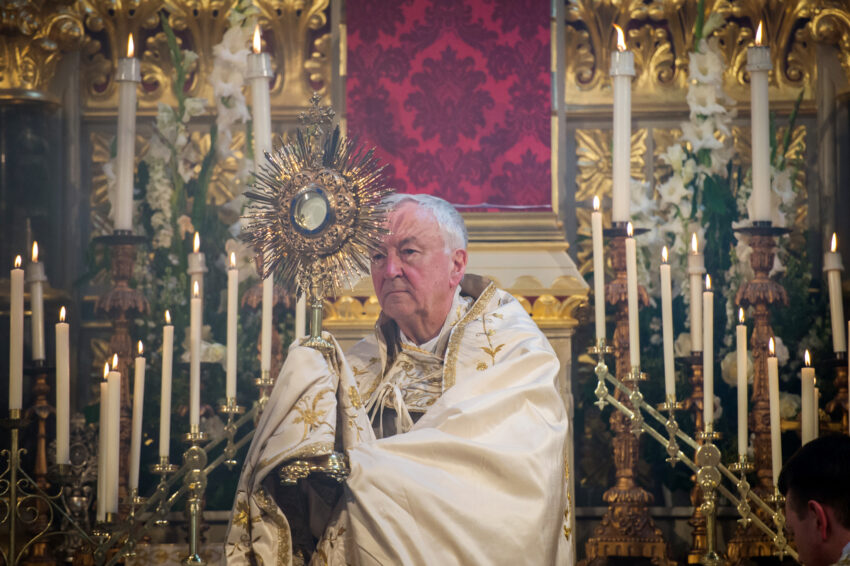HISTORY OF CORPUS CHRISTI
Corpus Christi or the Feast of Corpus Christi is also known as the Solemnity of the Most Holy Body and Blood of Christ. This festival of the Roman Catholic Church honors the body of Jesus Christ in the Eucharist. The day is observed either on a Thursday or a Sunday following Trinity Sunday. It is a public holiday in many countries.
The Feast of Corpus Christi is one of the few feasts that lay people promoted in the past. It started in the 13th century with Juliana of Liège, a canoness from modern-day Belgium who yearned for a feast day outside of Lent to honor the Eucharist. After receiving several visions of Christ — visions that began when she was 16 — Juliana worked with a young monk named John of Lausanne to institute the feast day. She spent more than 40 years working towards achieving this goal. Together they composed an office by which they could celebrate the feast. They were successful, and their diocesan bishop approved the texts in 1246.
Pope Urban IV declared Corpus Christi a feast day on August 11, 1264. Corpus Christi spread to nearby cities and towns, growing in popularity thanks to the efforts of Eva of Liège. Eva was an anchoress who continued Juliana’s work after her death. Ironically, Urban IV’s successors did not uphold his decree, and they suspended the festival. In 1311, Pope Clement IV reinstated the feast at the Council of Vienne.
The holiday is more likely to be implemented by the Catholic Church rather than government bodies. However, the day, sometimes also known as Holy Thursday, is widely accepted as a day of celebration. Every region in the world has its own way of celebrating Corpus Christi but consumption of wine and bread is mandatory. It was only in the 15th century that Corpus Christi became one of the principal feasts of the church. In Catholic religions, the festival is observed with a street procession and pageant, usually organized near the parish. The chief priests lead the mass and devotees gather in churches to pray and sing hymns.
Early Eucharistic festivals were glamorous affairs involving entire towns and cities. Sovereigns and nobles in European Catholic monarchies participated in the celebrations, accompanied by court officials and military officers. Commoners knelt outside their homes as these grand processions walked by. In modern times, Pope John Paul II led annual parades on the feast day, moving from St. Peter’s Square in the Vatican and through the streets of Rome. The Feast of Corpus Christi remains one of the essential celebrations underscoring the fundamental tenets of Christianity and Catholicism.
Contrary to popular belief, Corpus Christi is not just a Catholic festival but also celebrated in some Anglican and Lutheran Churches. These churches have a very different way of celebrating as compared to their Catholic counterparts. Anglican and Lutheran Churches do not have street processions and the celebrations are mostly restricted to church events. Protestants don’t typically celebrate the day. In most cultures, the Holy Communion is also an important part of the festival.
